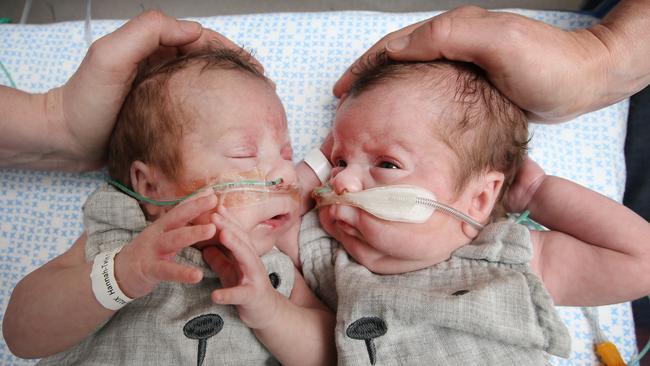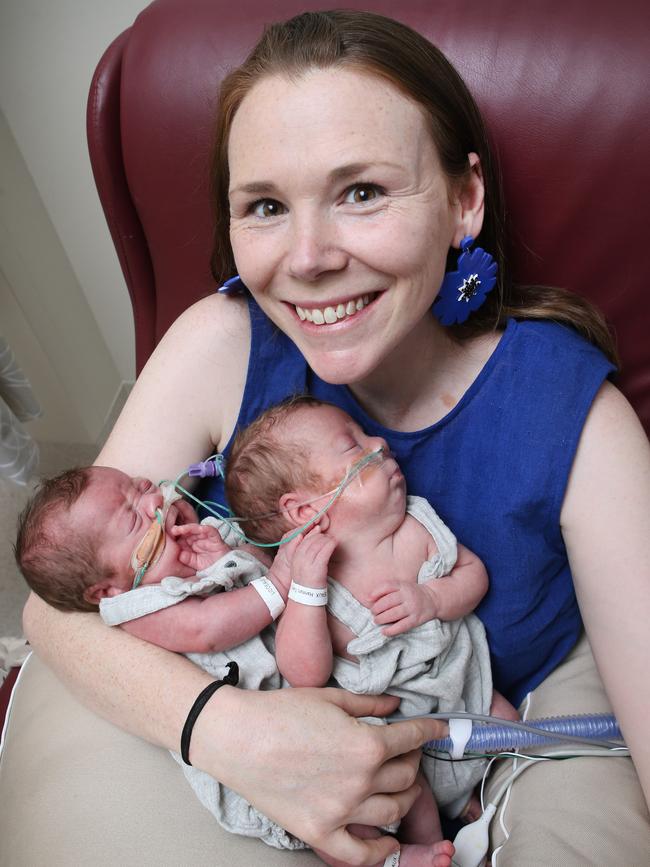Parents to get updates on premature babies’ chances during intensive care stay
PARENTS of extremely premature babies will be given more frequent updates about their chances throughout the infant’s hospital stay, thanks to a new Melbourne study.
VIC News
Don't miss out on the headlines from VIC News. Followed categories will be added to My News.
PARENTS of extremely premature babies will be given more frequent updates about their chances throughout the infant’s hospital stay, thanks to a new Melbourne study.
Infants born under 28 weeks gestation are at significantly greater risk of death and disability, and cannot survive without intensive care.
But while doctors counsel parents about these risks, until now this has been with general statistics that don’t account for the individual aspects of each baby’s case, nor how their chances may improve as they survive each week.
ULTRASOUND MAY CUT VENTILATION DAMAGE IN PREMMIES
PLACENTA SAVES PREMATURE BABIES IN HUMAN TRIAL
TEST DEVELOPED TO PREDICT PREMATURE BIRTH
And research has shown that parents of such premature babies suffer from higher rates of depression and anxiety.

A team from the Royal Women’s Hospital Murdoch Children’s Research Institute and University of Melbourne followed 751 extremely premature babies from birth until age eight.
The earlier the infants were born, the greater their chances of death and severe disability.
And the first week is crucial, particularly for the most immature infants. If a baby can get though this, their chance of survival at every stage from 23 weeks greatly improves.
The study found 83 per cent of babies born before 28 weeks, and who survived to leave hospital, had no major long-term disabilities, compared to 97 per cent of kids born at full-term.
However, once even extremely pre-term babies were able to leave hospital, their risk of death was no worse than babies born at full term.
Lead researcher and neonatologist Jeanie Cheong said it was important parents of premature babies had individualised, ongoing counselling.

“They worry about the present — whether their baby will survive — but they also worry about the future and whether their baby will have major disabilities,” Assoc Prof Cheong said. “If they survive the first week we have good data to reassure them that at this point their chances have improved.”
The findings were published in The Lancet Child and Adolescent Health journal.
It also found premature babies who avoided four major situations — a serious brain bleed, brain damage, steroids for a lung injury and surgery as a newborn — had the best prognosis.
Hannah Liddeaux and Lani Prideaux were faced with the heartbreaking possibility of their twin boys both dying at 24 weeks when they developed twin-to-twin transfusion syndrome.
Alfie and Otis, born weighing 1.3kg between them, are still two weeks from their official due date after 13 weeks in hospital but have quadrupled their weight and are breastfeeding while still being on oxygen.
“Having updated statistics about their chances would have given us something to hold on to,” Ms Liddeaux said.


